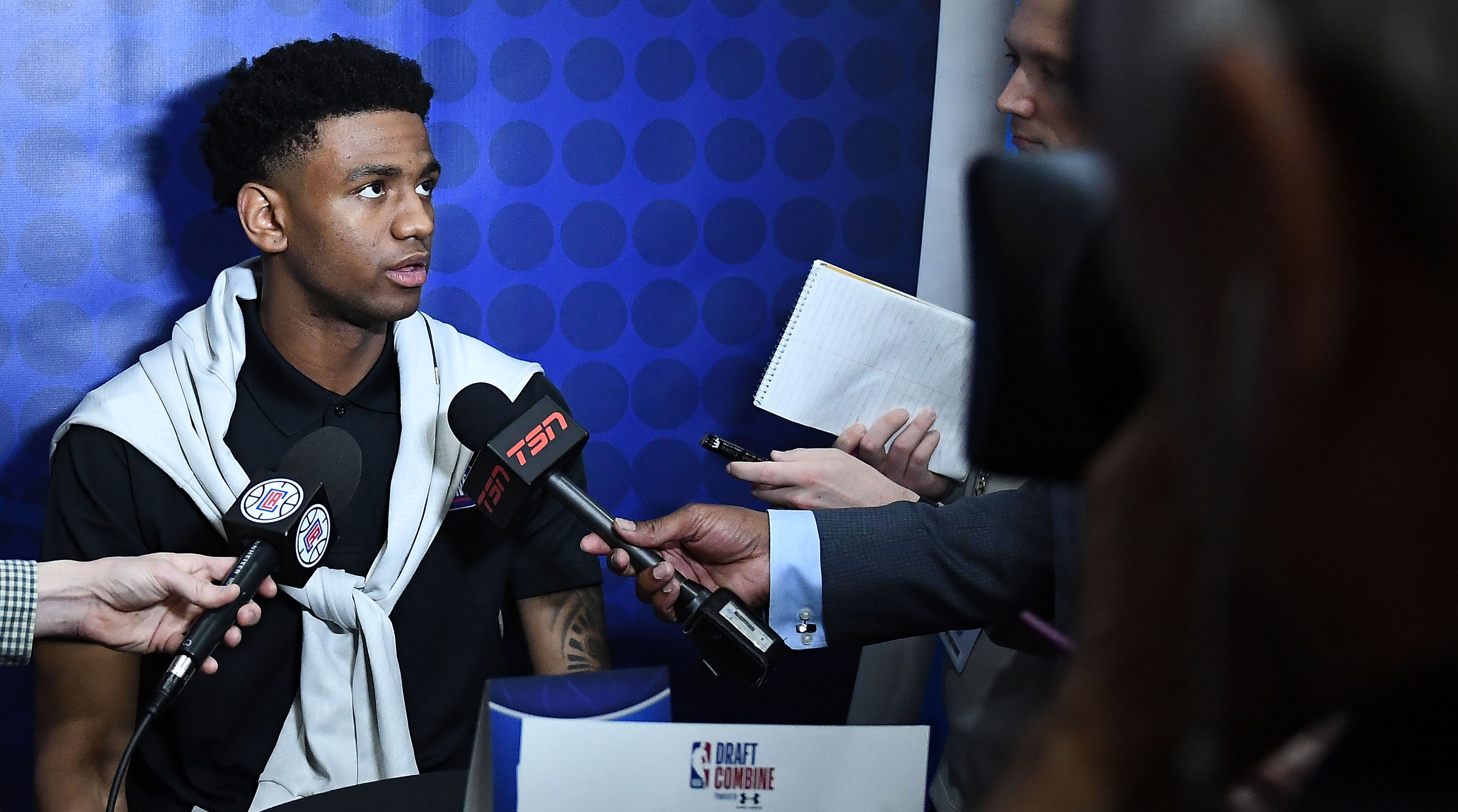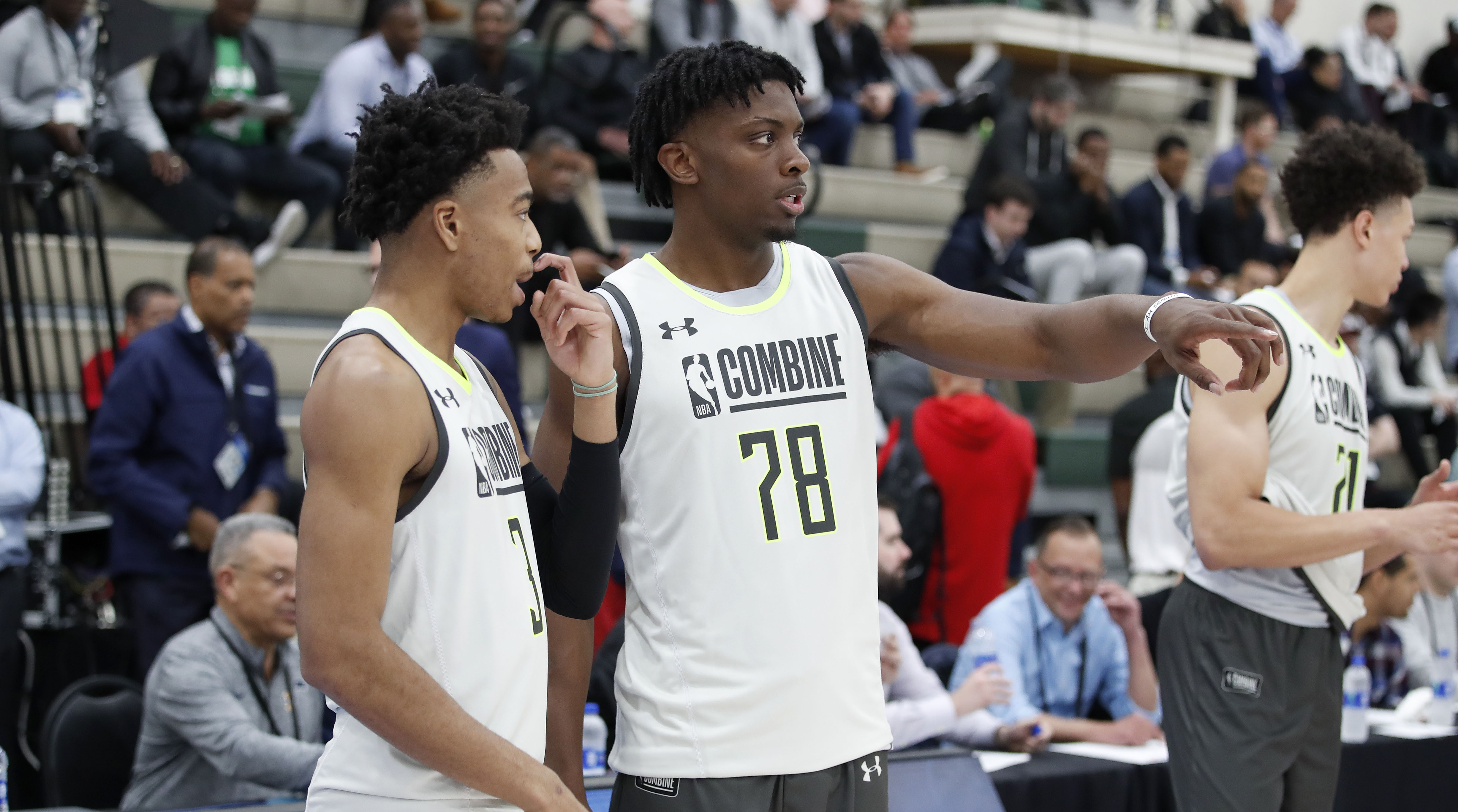For NBA Prospects, It’s Best When Social Media and Draft Stock Don’t Mix

CHICAGO — Last year, during one of the dozens of interviews NBA prospects participate in at the annual draft combine, a player was asked if he ever used a homophobic slur on social media. The player said no. A representative of the team took out a printout of a tweet the player had sent years earlier, using the homophobic slur.
Embarrassed, the player denied sending the tweet, claiming he had never seen it before. After the interview, the player was taken off the team’s draft board, a representative from the team told SI.com, requesting anonymity.
In recent years, digging up old tweets has led to some embarrassing moments. Many have been innocent. Kevin Durant declaring that he wanted to play in Oklahoma City for his entire career. Kyle Kuzma ridiculing LeBron James’s hairline. Bobby Portis criticizing Derrick Rose and Pau Gasol years before being drafted by the Bulls, and playing with them.
Others have been more problematic. In 2012, Larry Nance called Kobe Bryant a rapist, referencing Bryant’s sexual assault arrest in Colorado in 2003. In 2015, the Lakers drafted Nance—who became Bryant’s teammate. In 2017, the Mavericks drafted Dennis Smith Jr. The Mavericks made the pick aware that Smith’s Twitter account was filled with unacceptable language, including one sexually explicit tweet that eventually went viral. “Stupid stuff,” Mavs owner Mark Cuban said. After drafting Smith, Cuban got on the phone with him and said, “It’s time to get on there and delete.”

Scouring the social media accounts of prospective prospects has become an integral part of team’s draft process. The NBA assists by doing its own research. As part of the league’s efforts to ensure incoming prospects are prepared for the rigors of life in professional basketball, a handful of employees in the league’s PR department review players’ social media feeds for any content they may want to reconsider leaving up when taking into account the increased attention.
Some outsource the work to outside firms. Others instruct interns to pore through the Twitter accounts of players on their draft board. “That’s what we did,” said Bobby Marks, the former Nets assistant GM and ESPN front office Insider. “We wanted to walk into interviews knowing what they said, what they were retweeting. Being able to reference something they tweeted when they were 14 or 15, just to try to get them to open up. Because you already know basically everything about them. It’s about asking them, if they are going to be truthful.”
“It’s another window into the personality of a prospect,” said former Hawks GM Wes Wilcox. “A lot of information that comes from social media is good information. Things that interest a player. A family situation you want to know about. And there are the not so positive things you have to ask about. It’s an arms race for information, and social media is a part of it.”
In interviews with more than a dozen prospects at the combine, most expressed no concern for what teams might dig up. Reasons varied. Family came up often. “My Mom was always on my Twitter,” said Virginia Tech’s Nickeil Alexander-Walker. “She would call me about something I captioned or any rap [lyrics] I posted.” Said Iowa’s Tyler Cook, “When I first got social media, my parents were on there, too. So I couldn’t say anything wild. I never had any worries.”
For many, the schooling on social media began early. “Buzz Williams did a good job telling us to be careful,” Alexander-Walker said. Missouri’s Jontay Porter says he was warned at an NCAA leadership conference that NBA teams will be looking at old posts and told not to “tweet anything that will make them scratch their heads.” Nebraska’s Isaiah Roby recalls his AAU coaches warning him of the impact of an off-the-cuff post.
“That’s something I was taught really early, to watch what you say on social media because [the media] can use that as a direct quote from you,” Roby said. “I don’t think I’ve even cussed on Twitter.”
Still, most players joined Twitter at an early age, which has sent some searching through old posts. Kentucky’s Tyler Herro, a Twitter user since 2014, had someone “clean out” his account. Virginia’s Kyle Guy signed up in 2011, a baby-faced 13-year old in Indiana. When Guy began the draft process, he went back and took a few tweets down.
“Just stupid stuff, cussing and whatever,” Guy said. “We were all idiots back in the day. My dad is always like, ‘Man, I’m glad I didn’t have Twitter when I was young—I wouldn’t have any job offers.’”
UCLA’s Kris Wilkes, on Twitter since 2011, didn’t think he had anything worth deleting. But when his agency searched his account they identified one post to be deleted. The post, Wilkes said, was a retweet of PSA about sportsmanship, a video that showed a high school player alerting a referee late in a game that he had touched the ball before it went out of bounds, reversing the call. It wasn’t the retweet that got flagged, Wilkes said, but the comment he posted with it.
“I didn’t think it was that bad,” Wilkes said, laughing. “But they said I should take it down.”

NBA prospects are NBA fans, and most admitted that there could be hot-take tweets out there, times when the basketball fan in them spilled onto social media. “I probably said something about a team,” Cook said. “But nothing disrespectful.”
Those are not the tweets they—or NBA teams—are concerned with. And even if questionable tweets surfaced, Tennessee’s Jordan Bone said, teams should know the views expressed by teenagers years ago are not necessarily reflective of the people they are today.
“The things that I thought about in the past or said in the past, they don’t reflect who I am as a person now,” Bone said. “I don’t really worry about the past. I’m working on bettering myself every day as a person and a player. I have no idea [if questionable tweets are up]. Even if there is something was there, it doesn’t represent who I am now.”
